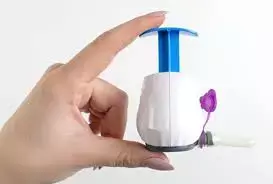- Home
- Medical news & Guidelines
- Anesthesiology
- Cardiology and CTVS
- Critical Care
- Dentistry
- Dermatology
- Diabetes and Endocrinology
- ENT
- Gastroenterology
- Medicine
- Nephrology
- Neurology
- Obstretics-Gynaecology
- Oncology
- Ophthalmology
- Orthopaedics
- Pediatrics-Neonatology
- Psychiatry
- Pulmonology
- Radiology
- Surgery
- Urology
- Laboratory Medicine
- Diet
- Nursing
- Paramedical
- Physiotherapy
- Health news
- Fact Check
- Bone Health Fact Check
- Brain Health Fact Check
- Cancer Related Fact Check
- Child Care Fact Check
- Dental and oral health fact check
- Diabetes and metabolic health fact check
- Diet and Nutrition Fact Check
- Eye and ENT Care Fact Check
- Fitness fact check
- Gut health fact check
- Heart health fact check
- Kidney health fact check
- Medical education fact check
- Men's health fact check
- Respiratory fact check
- Skin and hair care fact check
- Vaccine and Immunization fact check
- Women's health fact check
- AYUSH
- State News
- Andaman and Nicobar Islands
- Andhra Pradesh
- Arunachal Pradesh
- Assam
- Bihar
- Chandigarh
- Chattisgarh
- Dadra and Nagar Haveli
- Daman and Diu
- Delhi
- Goa
- Gujarat
- Haryana
- Himachal Pradesh
- Jammu & Kashmir
- Jharkhand
- Karnataka
- Kerala
- Ladakh
- Lakshadweep
- Madhya Pradesh
- Maharashtra
- Manipur
- Meghalaya
- Mizoram
- Nagaland
- Odisha
- Puducherry
- Punjab
- Rajasthan
- Sikkim
- Tamil Nadu
- Telangana
- Tripura
- Uttar Pradesh
- Uttrakhand
- West Bengal
- Medical Education
- Industry
Transdermal capillary sampling of C-peptide promising alternative to venous sampling in people with type 1 diabetes

Transdermal capillary sampling of C-peptide promising alternative to venous sampling in people with type 1 diabetes suggests a new study published in the Diabetes Care.
C-peptide and islet autoantibodies are key type 1 diabetes biomarkers, typically requiring venous sampling, which limits their utility. We assessed transdermal capillary blood (TCB) collection as a practical alternative. Ninety-one individuals (71 with type 1 diabetes, 20 control; individuals with type 1 diabetes aged median 14.8 years [interquartile range (IQR) 9.1–17.1], diabetes duration 4.0 years [1.5–7.7]; control individuals: 42.2 years [38.0–52.1]) underwent contemporaneous venous and TCB sampling for measurement of plasma C-peptide. Participants with type 1 diabetes also provided venous serum and plasma, and TCB plasma for measurement of autoantibodies to glutamate decarboxylase, islet antigen-2, and zinc transporter 8. The ability of TCB plasma to detect significant endogenous insulin secretion (venous C-peptide ≥200 pmol/L) was compared along with agreement in levels, using Bland-Altman. Venous serum was compared with venous and TCB plasma for detection of autoantibodies, using established thresholds. Acceptability was assessed by age-appropriate questionnaire.
RESULTS: Transdermal sampling took a mean of 2.35 min (SD 1.49). Median sample volume was 50 µ. TCB C-peptide showed good agreement with venous plasma (mean venous ln[C-peptide] – TCB ln[C-peptide] = 0.008, 95% CI [−0.23, 0.29], with 100% [36 of 36] sensitivity/100% [50 of 50] specificity to detect venous C-peptide ≥200 pmol/L). Where venous serum in multiple autoantibody-positive TCB plasma agreed in 22 of 32 (sensitivity 69%), comparative specificity was 35 of 36 (97%). TCB was preferred to venous sampling (type 1 diabetes: 63% vs. 7%; 30% undecided). Transdermal capillary testing for C-peptide is a sensitive, specific, and acceptable alternative to venous sampling; TCB sampling for islet autoantibodies needs further assessment.
Reference:
Besser REJ, Long AE, Owen KR, Law R, Birks JS, Pearce O, Williams CL, Scudder CL, McDonald TJ, Todd JA. Transdermal Blood Sampling for C-Peptide Is a Minimally Invasive, Reliable Alternative to Venous Sampling in Children and Adults With Type 1 Diabetes. Diabetes Care. 2024 Feb 1;47(2):239-245. doi: 10.2337/dc23-1379. PMID: 38087932.
Dr. Shravani Dali has completed her BDS from Pravara institute of medical sciences, loni. Following which she extensively worked in the healthcare sector for 2+ years. She has been actively involved in writing blogs in field of health and wellness. Currently she is pursuing her Masters of public health-health administration from Tata institute of social sciences. She can be contacted at editorial@medicaldialogues.in.
Dr Kamal Kant Kohli-MBBS, DTCD- a chest specialist with more than 30 years of practice and a flair for writing clinical articles, Dr Kamal Kant Kohli joined Medical Dialogues as a Chief Editor of Medical News. Besides writing articles, as an editor, he proofreads and verifies all the medical content published on Medical Dialogues including those coming from journals, studies,medical conferences,guidelines etc. Email: drkohli@medicaldialogues.in. Contact no. 011-43720751


